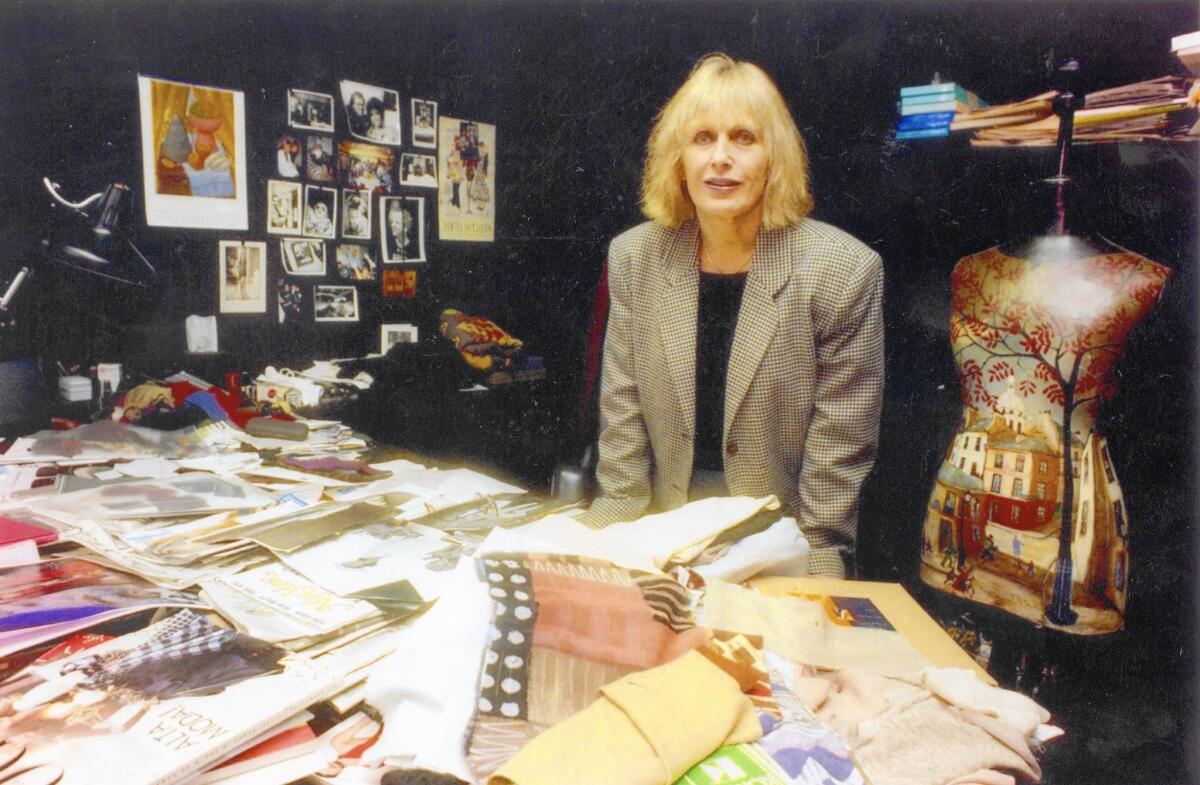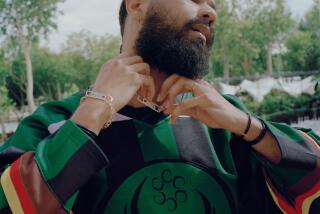Carole Little, designer of working women’s fashion, dies at 80

In the mid-1970s, as the “Twiggy era” of skimpy hot pants and miniskirts was winding down, Carole Little was gearing up to make her mark in the world of retail fashion.
Her first success was a simple, loose-fitting silk blouse with two patch pockets and epaulets, styled after an oversized man’s shirt she had bought in Paris and loved to wear. It had a sophisticated ease, looked great with jeans or a dyed-to-match skirt and was moderately priced.
“That epitomized the look I wanted,” Little recalled in a 1987 interview with United Press International. And it launched Little’s company as a force for working women who wanted a stylish but affordable look.
Little, whose creative vision helped turn her eponymous brand into a favorite of career women, died Sept. 19 at her home in San Diego. She was 80 and had cancer, said her daughter, Jennifer.
With Leonard Rabinowitz, her business partner and later husband, Little started California Fashion Industries Inc. in downtown Los Angeles in 1974.
By 1979, the company had $30 million in sales. By the early 1990s, Rabinowitz said, the volume reached $350 million.
Their trip to Paris brought a pivotal insight. Little and Rabinowitz noticed shop girls wearing expensive-looking clothes and wondered how they could afford them. Then the couple observed that the women might wear the same shirt the next day, but pair it with a skirt instead of pants.
Compared with American women’s wardrobes, the Parisian women’s “were smaller but better,” Rabinowitz recalled in an interview Friday. “We thought we’d like to bring that [concept] back to the States … at an affordable price. That was the niche we decided to be in, and it was a hit.”
They launched the company with $20,000 borrowed from his family. Business took off when Lauren Hutton, the top model and later actress, wore one of Little’s silk shirts on the cover of People magazine.
After the silk separates, Little found mass appeal with prints and a color palette that was flattering to a wide range of women.
Major department stores such as Saks Fifth Avenue and Bullock’s embraced her designs, which were described as ideal for “women intent on scaling the corporate ladder.” Later, garment-industry analysts would include Carole Little among the firms that led a renaissance in the Los Angeles apparel industry in the 1970s and ‘80s.
Before long, Little was making gowns for presenters at the Oscars and other public figures. She was chosen to dress Mayor Tom Bradley’s wife, Ethel, in red, white and blue silk outfits for the 1984 Summer Olympics.
She often gathered feedback covertly, eavesdropping on women browsing racks of her clothes in stores. When she returned to the office, she shared their comments.
“She would come up and say, ‘You need to put in a black line because every woman has a pair of black shoes,’” recalled Anne Bennion, a department head at the Fashion Institute of Design and Merchandising in Los Angeles who designed prints for Little and later served as her art director. “She was really aware of her customers. I’m still surprised how many people tell me to this day, ‘Oh, my favorite dress was a Carole Little dress.’”
The daughter of a Sears shoe executive, Little was born in Chicago on Sept. 27, 1934, and moved with her family to Los Angeles when she was a child. She majored in English at UCLA, then studied fashion design at Los Angeles Trade Technical College.
Her first job in the apparel business was as a secretary for a Los Angeles swimsuit maker. Later she worked for a large manufacturer where she designed trendy wear, including hot pants. The division manager was Rabinowitz.
They called the first line they launched on their own Saint-Tropez West. After a few years, they started putting Little’s name on the clothes.
In the 1990s the company faced a number of difficulties. Two of its executives were killed within a span of several months in 1994. The cases stumped authorities, but were thought to involve organized crime operating in the garment business.
The company later filed for bankruptcy after an ill-fated merger. In 2002 Cherokee Inc. bought the Carole Little label.
She and Rabinowitz went on to form a design studio and produce a line of jersey-knit T-shirts. Little retired in 2013.
She was married to Rabinowitz for 22 years until they divorced in the late 1990s. Besides her daughter, she is survived by two grandchildren.
More to Read
Start your day right
Sign up for Essential California for the L.A. Times biggest news, features and recommendations in your inbox six days a week.
You may occasionally receive promotional content from the Los Angeles Times.







